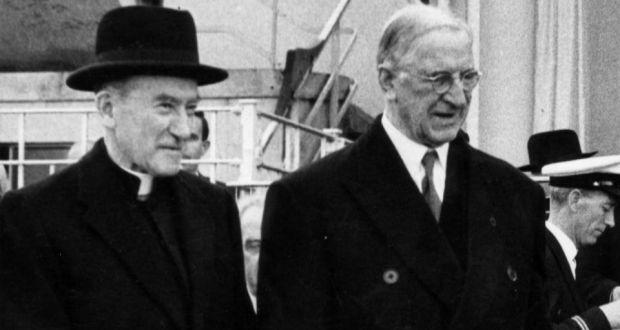State Played Important Role in Denying the Adopted a Sense of Their Origin
By Robbie Roulston
Tracing legislation, to enable adopted individuals to identify their biological parents, has recently become a subject of debate, with TD Clare Daly, in particular, pressing Taoiseach Enda Kenny and Minister for Children Frances Fitzgerald on the matter. In response to Daly’s questions in March last year, Fitzgerald agreed reform was very important and voiced her support for “the strongest possible legislation to deal with this issue” but warned there were constitutional obstacles. In addition to the commitments of Fitzgerald and the parliamentary questions of Daly and other TDs, a number of organisations, such as the Adoption Rights Alliance, Adopted Illegally Ireland and Adoption Rights Now, are working to shed light on this issue, thereby dislodging another skeleton from the Irish church-State closet. Adoption Act, 1952 When the Adoption Act, 1952, was crafted, formalising the adoption process in the Republic, the hierarchy of the Catholic Church was given an unusual degree of control even by the prevailing standards in the State. Every line of the proposed Bill was sent to the Catholic Archbishop of Dublin, John Charles McQuaid, for his scrutiny. McQuaid proofed the legislation and insisted “the safeguards must be such as the church considers sufficient to protect faith and morals”. To ward off “the evils of proselytism” these safeguards sought to bar couples in mixed- religious marriages from adopting children, and more glaringly prevented the child of such a couple, for instance in the case of an orphan, from being adopted. Similar restrictions were placed on children of no religion and children aged eight or more. In the case of a mother who changed her religion within a year of giving birth, a subsequent child could not be adopted until a year had passed after the change. This last measure was to safeguard against mothers switching their denominational adherence to find a suitable home for their child. The Department of Justice also made sure no measure connected to the Adoption Act would enable traceability, and prevented the Department of Health from introducing reforms that would have provided a more straightforward, State-registered paper trail. The Department of Health requested that the adoption register include the county of birth, a proposal rejected by the Department of Justice, which argued: “The number of children involved would be so small in this country that in many cases such an entry would enable any person to trace with a strong degree of probability (and sometimes with certainty) the connections between the two entries by a comparison of dates, etc, in the register of adopted children and the original register of births.” Thus the paper trail was to be burned as a matter of State policy. Contradictory agendas This was not the last time that these two departments would clash over the welfare of children, carrying an important lesson from the period: the State did not act as one on matters of church and State. Different government ministers, different departments and different civil servants pursued varying and often contradictory agendas. When the Department of Health introduced reforms in 1957 that required adoption societies to notify public authorities before they placed a child with the intent of adoption, so that local authorities could inspect the prospective adoptive home, Catholic Social Welfare Bureau director and McQuaid’s point man on adoption issues Msgr Cecil Barrett was furious. Barrett confided to McQuaid: “All the Catholic adoption societies objected strongly to this particular section as it cut right across the confidential nature of the work as provided for in the Adoption Act, 1952. I drew the attention of the Department of Justice and the Adoption Board to what had happened and it was the first either of them had heard of it. It was the Department of Health which was responsible for the introduction of this offending section.” Of the adopted child, he argued “legally its original surname is buried”. Barrett concluded: “No substantial change should have been made without the approval of the hierarchy”. He had the 1957 reforms reversed in the Adoption Act of 1964. In response, McQuaid sent Barrett his “very grateful congratulations”, and he also wrote to the minister for justice, Charles Haughey, to “express to you my own gratitude and the appreciation of the bishops for your courtesy and for the unfailing co-operation of the department [of justice] in all that concerns the adoption of children”. The State played an important role in denying some its more vulnerable citizens a sense of their origin. Those who argue today that it has a commensurate duty to address this have a strong case.
|
.
Any original material on these pages is copyright © BishopAccountability.org 2004. Reproduce freely with attribution.
